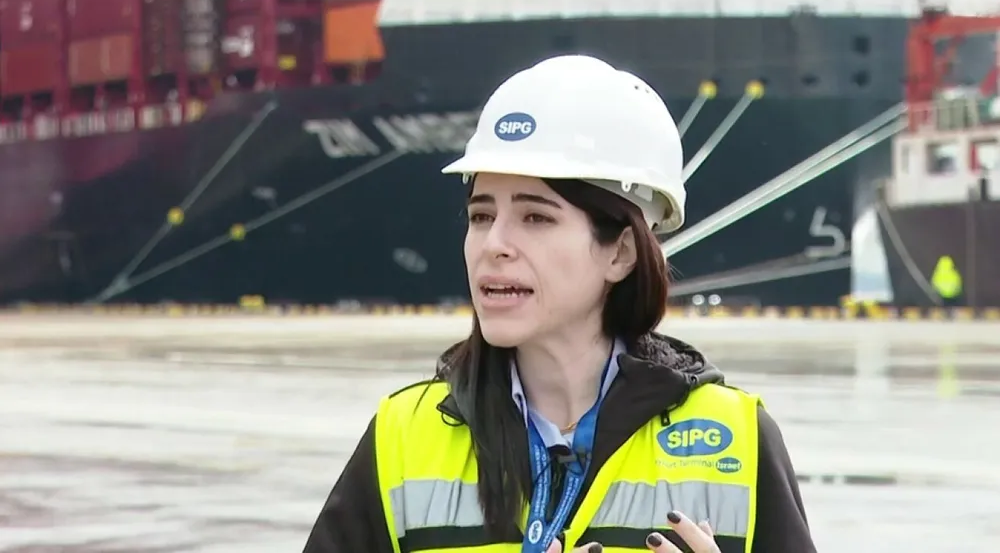Getting your Trinity Audio player ready...
Israeli ports have encountered significant disruptions due to recent attacks launched by the Houthi group in the Red Sea, targeting ships bound for Israel.
More stories:
These assaults have severed vital arteries of the global economy, compelling maritime transport companies to divert their routes away from Bab al-Mandab, tripling the time it takes for ships to reach Israeli ports.
Khitam Salama, from the Strategic Planning Department at Haifa Bay Port, highlighted the profound impact of these attacks, stating, "It affected our work and I think it affected the entire region."
Red Sea attacks impact trade at Israel's ports
(i24NEWS)
Salama noted the prolonged arrival times for ships, explaining, "A ship that normally takes a week now takes three weeks." The port has been adapting to the situation by consolidating orders and reducing the number of incoming ships, but delays persist.
In contrast, Haifa Bay Port, owned by the Shanghai International Ports Group, has experienced increased commercial activity. Wassef Antun, a crane operator at the port, remarked on the situation, stating, "Work here increased because the ships that used to go to the port of Ashdod now come to us."
Bay Port Director Tal Goldstein emphasized the port's advanced technology and operational efficiency, particularly in deploying a young workforce. Goldstein highlighted, "Our technology is very advanced. For example, crane operators work from control rooms. Unlike what was previously."
2 View gallery


Khitam Salama from the Strategic Planning Department at Haifa Bay Port
(Photo: i24NEWS)
The security situation has prompted insurance companies to impose additional fees on containers, further exacerbating costs for maritime trade. This has led to a doubling of work at the port, with Salama emphasizing the need for round-the-clock operations to meet shipping demands.
Despite the challenges, the Israeli Tax Authority is providing full compensation to ships damaged in the conflict. However, the continuation of the Israeli war on Gaza, coupled with the Houthi group's linking of ship safety to the end of the conflict, complicates the situation.






